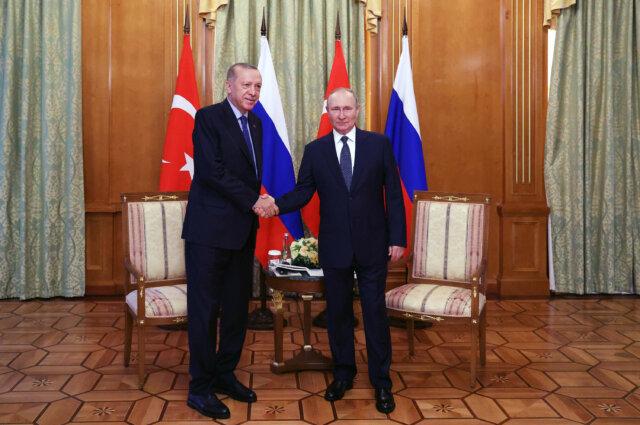ANKARA, Turkey—A recent meeting in Sochi, Russia, between the leaders of Russia and NATO member Turkey has reportedly sparked fears among Western officials of perceived “deepening ties” between Ankara and Moscow.
However, experts who spoke to The Epoch Times challenge that assertion, saying the meeting—and its outcome—merely reflect Ankara’s pragmatic approach to its dealings with Russia.





